Living with eczema can be difficult, and never more so than during an eczema ‘flare-up’ when skin feels itchy and irritated. This article looks at what we mean by a ‘flare-up’. It examines what causes eczema to flare, whether stress can cause eczema, and makes informed suggestions to help you treat the symptoms of an eczema flare-up.
What is an eczema flare-up?
Eczema has two distinct phases. A flare-up occurs when skin is irritable. This ‘active phase’ or ‘acute phase’ of the disease includes the following symptoms:
- Itchy or intensely itchy skin. It may be sore too, and some people experience a burning sensation.
- A rash that appears dry, red and flaky. It can be uneven or swollen and may bleed mildly if it’s been scratched.
- Moist or weeping fluid when eczema is very active.
- Small water blisters can develop, especially on the hands and feet.
Eczema flare-ups versus non-acute phases of eczema
An acute phase of eczema is when there is eczema flare-up and is by far the most distressing of the two phases, affecting sufferers both physically and psychologically. Eczema flare-ups vary in length from person to person, but thankfully there are steps you can take to help soothe skin during a flare-up. Non-acute phase of eczema is when there is no active eczema flare-up present. Appropriate and regular skin moisturization is a key factor in helping to manage eczema and reduce the incidences of flare-ups. This article explains how you can help soothe minor irritation from eczema with Eucerin Eczema Relief.
Please be sure to contact a health care provider if you experience any bleeding or leaking fluid or the rash is prolonged or worsens
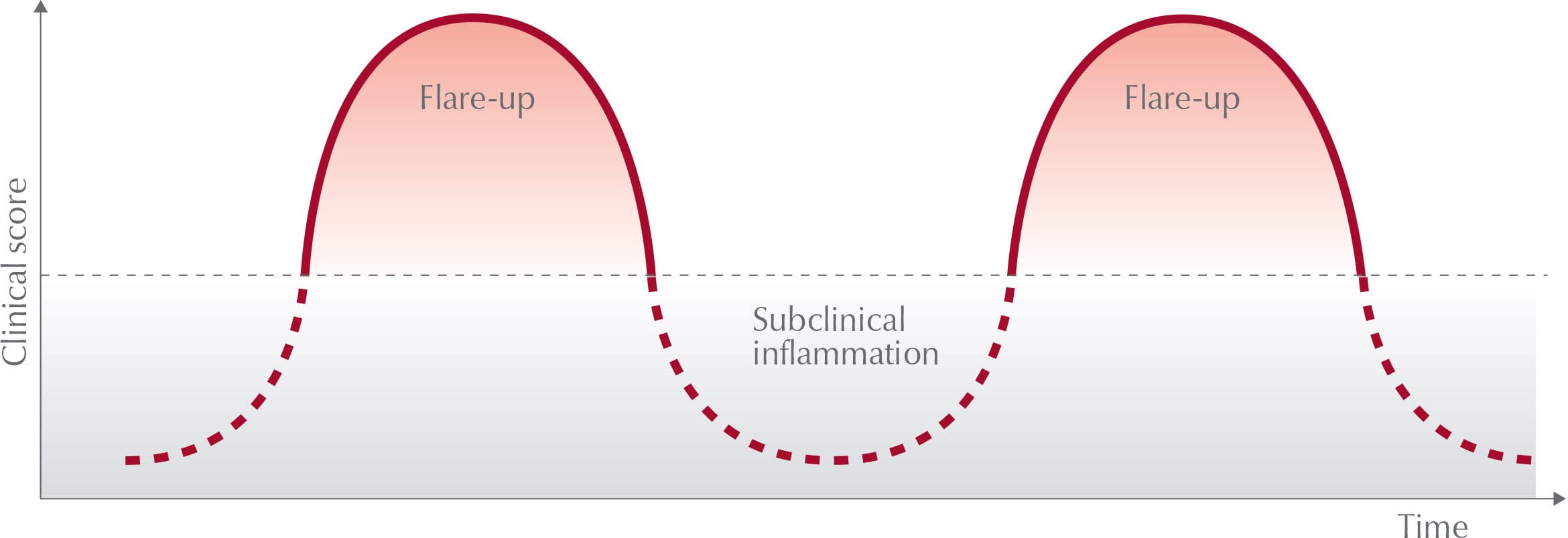
What causes eczema to flare-up?
Eczema is an inflammatory dry skin disease. Largely genetic, it is linked to a compromised skin barrier function and an immune disorder. Environmental irritants and allergens can trigger a reaction in those predisposed to eczema. Read more about what causes eczema here.
Due to its compromised barrier, skin impacted by eczema struggles to retain essential moisture and lipids. It dries out rapidly and is unable able to adequately protect against external influences. Skin may become prone to irritation and infection and, because people with eczema may have a sensitive immune system, they are less able to combat these irritants and more prone to allergic reactions.
Triggers of Eczema
There are many different factors that can trigger an eczema flare-up and make symptoms worse. These vary from person to person but may include:
- Climate and pollution: Changes in temperature, hot and humid climates and the air pollution typical of cities have all been known to exacerbate the condition. Eczema flare-ups are more likely in the winter, with an increase in dry air, indoor heating and hot baths or showers.
- Sweat: Sweat can irritate skin’s surface and cause itching and irritation.
- Allergies: House mites, pollen and/or dust can all trigger an eczema flare-up. The possible link between diet and eczema is a controversial one, but some people report that certain types of food and drink make their skin worse. The most commonly allergenic foods are eggs, milk, peanuts, wheat, soy, tree nuts, shellfish and fish.
- Cigarette smoke: Both smoking and second-hand smoke can worsen symptoms
- Fabrics: Some wools and non-breathable fabrics such as nylon, Lycra, and polyester can irritate skin. Warm, tight or heavy clothing can make you sweat and cause flare-ups too.
- Jewlery: Watches and jewelry often contain nickel. When worn continuously, sweat can oxidize nickel and cause a reaction.
- Chemicals: The ingredients in some harsh cleansers and cosmetic products may trigger a skin flare-up.
- Sun: Some people report that the sun alleviates their symptoms while, for others, it can trigger flare-ups and make skin worse.
- Dry skin: Skin can become scaly, rough and cracked when it’s dry, which can then develop into an eczema flare-up if bacteria or allergens enter the skin.
The Eczema Skin Cycle
Existing symptoms of eczema can also trigger and/or exacerbate an eczema flare-up. When skin is dry and itchy, sufferers feel the urge to scratch. These scratching damages the skin's protective barrier, which can lead to inflammation and itching, which worsens the condition making skin even more irritable and itchy: a vicious circle commonly known as the Itch-Scratch Cycle.
Can stress trigger an eczema flare-up?
Yes, emotional stress can trigger an eczema flare-up and affect skin's barrier functions. Our body reacts to stressful situations by increasing the production of stress hormones like cortisol and adrenaline. An overproduction of cortisol can suppress the immune system, triggering an inflammatory response in the skin.
Reducing stress in your life won't cure stress-related eczema flare-ups completely, but it will help alleviate symptoms and prevent future flare-ups. Try the following tips to reduce stress-related eczema flare-ups:
- Identify the main triggers of your stress and explore the best way to deal with these in the future
- Exercise regularly and ensure you get fresh air
- Aim to sleep for at least eight hours per night
- Switch off from your work life and make time to relax, doing things that make you happy
Can an eczema flare-up affect more than just your skin?
Eczema flare-ups can have a considerable impact on quality of life. Beyond the itching and skin discomfort, sufferers report a lack of sleep, discrimination, stress, and low self-esteem.
Although eczema is non-contagious, it impacts on family and caregivers too. Relationships are affected by the constant itching, sleepless nights and low self-esteem of the sufferer and, in the case of babies and children, parents often feel guilty and helpless.
How long does an eczema flare-up last?
Eczema flare-ups vary in length from days to weeks depending on the individual, the severity of their eczema, their stress level, immune system, their adherence to an eczema flare-up treatment protocol, and other factors impacting the cause of the flare-up. It’s important to treat an eczema flare-up as soon as possible, as once symptoms progress, it can be harder to help restore the skin to its noninflamed state. If you are experiencing prolonged eczema flare-up symptoms that are not improving with treatment, be sure to contact your dermatologist for further guidance.
Relief for eczema flare-ups
Sadly, there is no cure for eczema, but there are lots of things you can do to treat the symptoms of eczema, calm symptoms of an eczema flare-up and stop itching. Symptoms in both active and non-active phases can be eased with consistent, effective skincare and appropriate medical treatment.
For children who suffer from eczema flare-ups, regular use of therapeutic moisturizers can help restore the skin's barrier. Treat the symptoms of eczema early, because the more severe the condition becomes, the harder it may be to control.
Patients who suffer from regular flare-ups will likely require medical treatment to improve quality of life measures, so talk to your doctor to find out what treatments would be best for your skin. Eczema treatment options could include:
- Hydrocortisone 1% Cream
- A prescription cream or ointment
- Bandages and wet wraps
- Antihistamines to reduce severe itching
This article is not intended for use as medical advice. Please consult with your physician or a medical professional who can best advise you on your particular needs.
Eucerin Eczema Relief Flare-Up Treatment
Skincare products can be applied to soothe eczema symptoms. During active eczema flare-ups, use Eucerin Eczema Relief Flare-Up Treatment to soothe skin and relieve itchiness, minor irritation and dryness related to eczema. This eczema flare-up cream with Colloidal oatmeal (skin protectant) instantly calms and soothes skin, has a mild cool sensation when applied, and can reduce eczema symptoms with regular use. Use as directed.
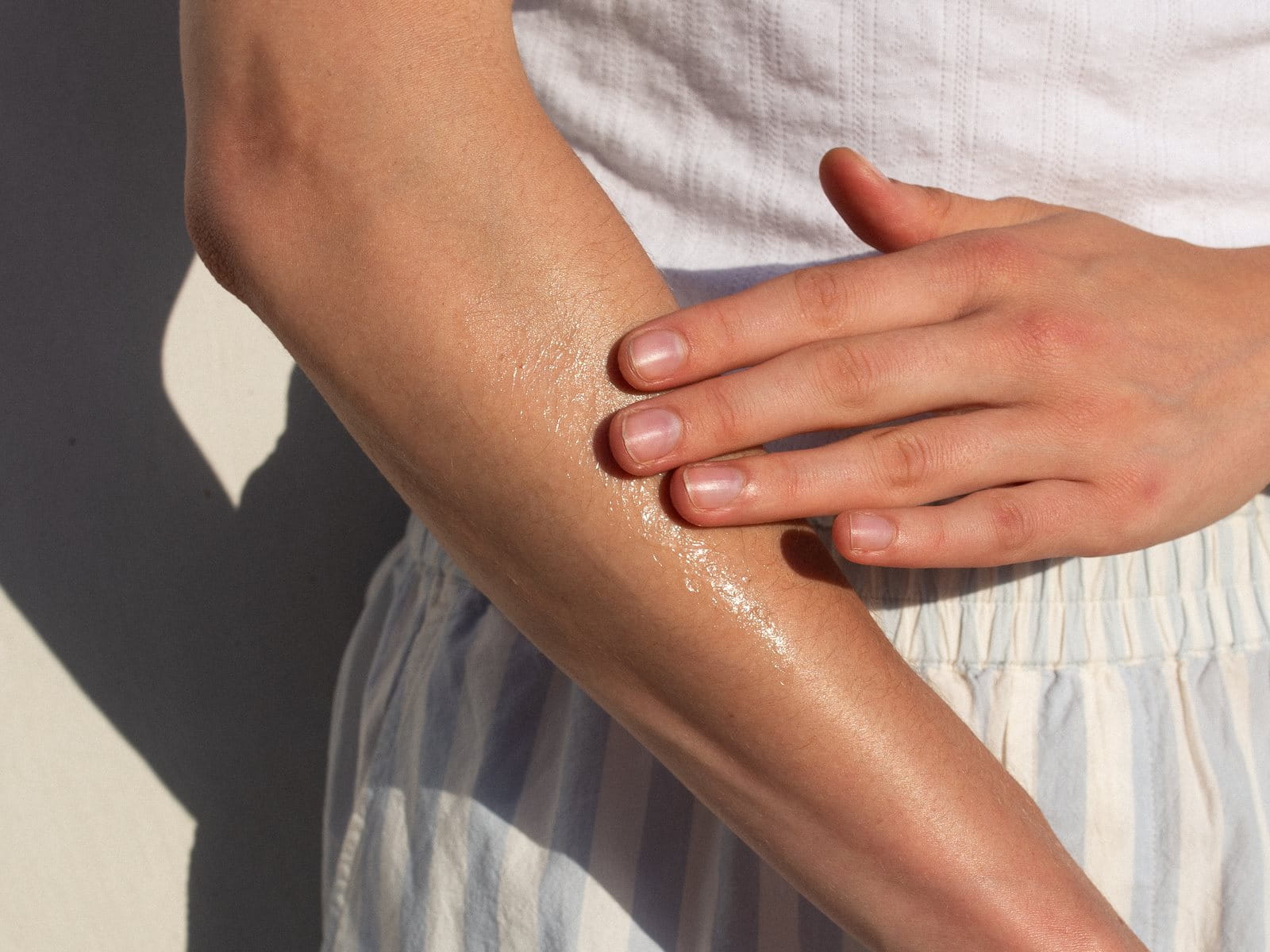
To immediately soothe irritation from eczema and help relieve itch for up to 12 hours, Eucerin Eczema Relief Hydrogel is a clinically proven formula containing Colloidal Oatmeal (skin protectant), Ceramide-3, Licochalcone A and Hyaluronic Acid. This eczema relief gel locks in moisture, soothes red, irritated eczema-prone skin, and intensively moisturizes. Appropriate for use on face and body, Eucerin Eczema Relief Hydrogel delivers 48-hour hydration while delivering an instant cool sensation when applied.
For daily use, try moisturizing Eucerin Eczema Relief Cream with Colloidal oatmeal (skin protectant) to gently and effectively reduce itching, irritation, and dryness due to eczema. Regular usage has been clinically proven to reduce incidence of eczema flare-ups. Use as directed.
How to avoid potential eczema triggers
Identifying and avoiding potential triggers is another important step in delaying and reducing eczema symptoms. Speak to your doctor to establish the trigger of your eczema flare-up, so you can try to avoid it. Follow these general tips to prevent eczema flare-ups in the future:
- Do not scratch: Though it can feel tempting and satisfying to scratch affected areas, this can be very damaging to skin and lead to more eczema occurring. Chronic and deep scratching causes bleeding and increases the risk of scarring or infection. Gently rubbing your skin with your fingers may satisfy the urge.
- Limit scratching damage: Keep your fingernails short and clean to reduce any damage. If your baby has atopic dermatitis, try anti-scratch mittens.
- Moisturize your skin: Avoid dry skin, especially in the winter months, by moisturizing two or three times a day. Eucerin Eczema Relief Cream formulated with Colloidal Oatmeal (skin protectant) provides 24-hour moisture and helps strengthen the skin’s barrier with regular use.
- Avoid hot showers and baths: Hot water can dry your skin out, so use lukewarm water instead and try to limit the number of baths you take and shorten your shower. After swimming, rinse off the chlorine and moisturize after drying.
- Pat dry: Rubbing your skin with a towel after bathing may irritate your eczema, so gently pat dry instead.
- Stay hydrated: Aim to drink at least two liters of water per day to ensure you keep your body hydrated.
- Wear soft clothing: Choose soft, fine-weaved clothing or natural materials that are gentle on the skin and avoid fabrics that cause eczema flare-ups.
- Remove dust: Keep your house clean by dusting often.
The information provided herein is not intended to be medical advice. Nor is it intended to treat the underlying skin disease or condition. The information is provided solely to:
- Moisturize, soften and smooth dry skin
- Improve the appearance of the skin
- Achieve healthier-looking skin


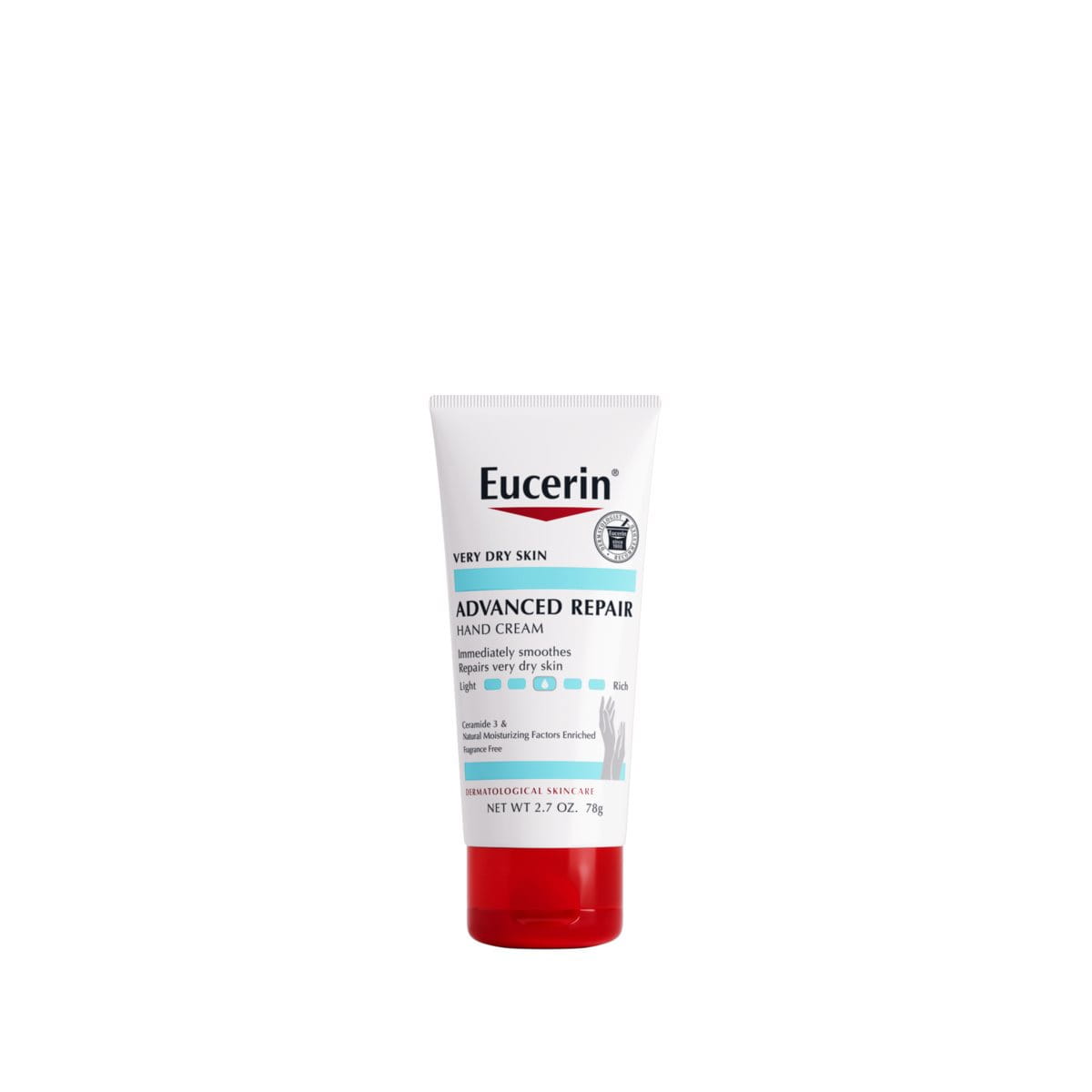
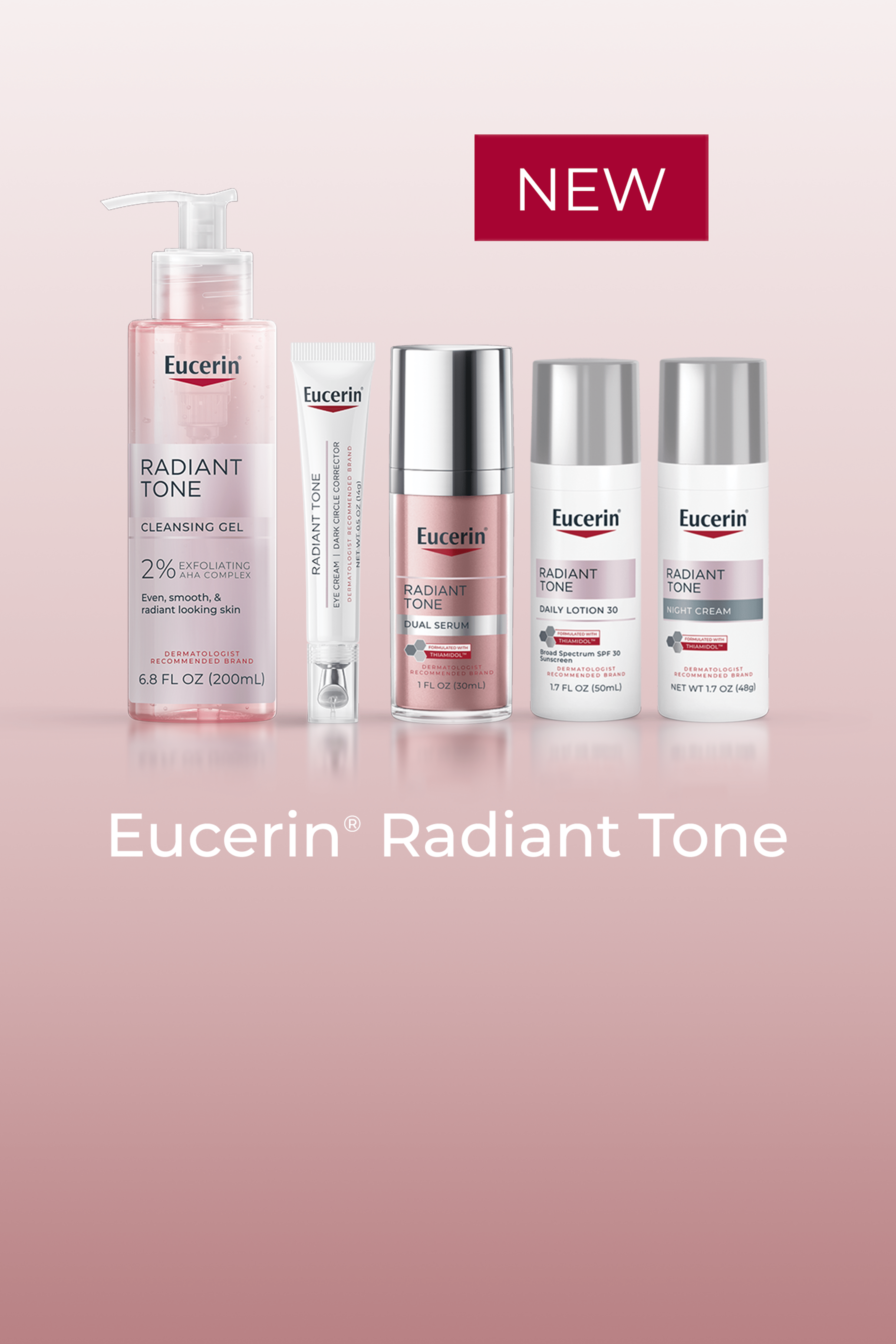


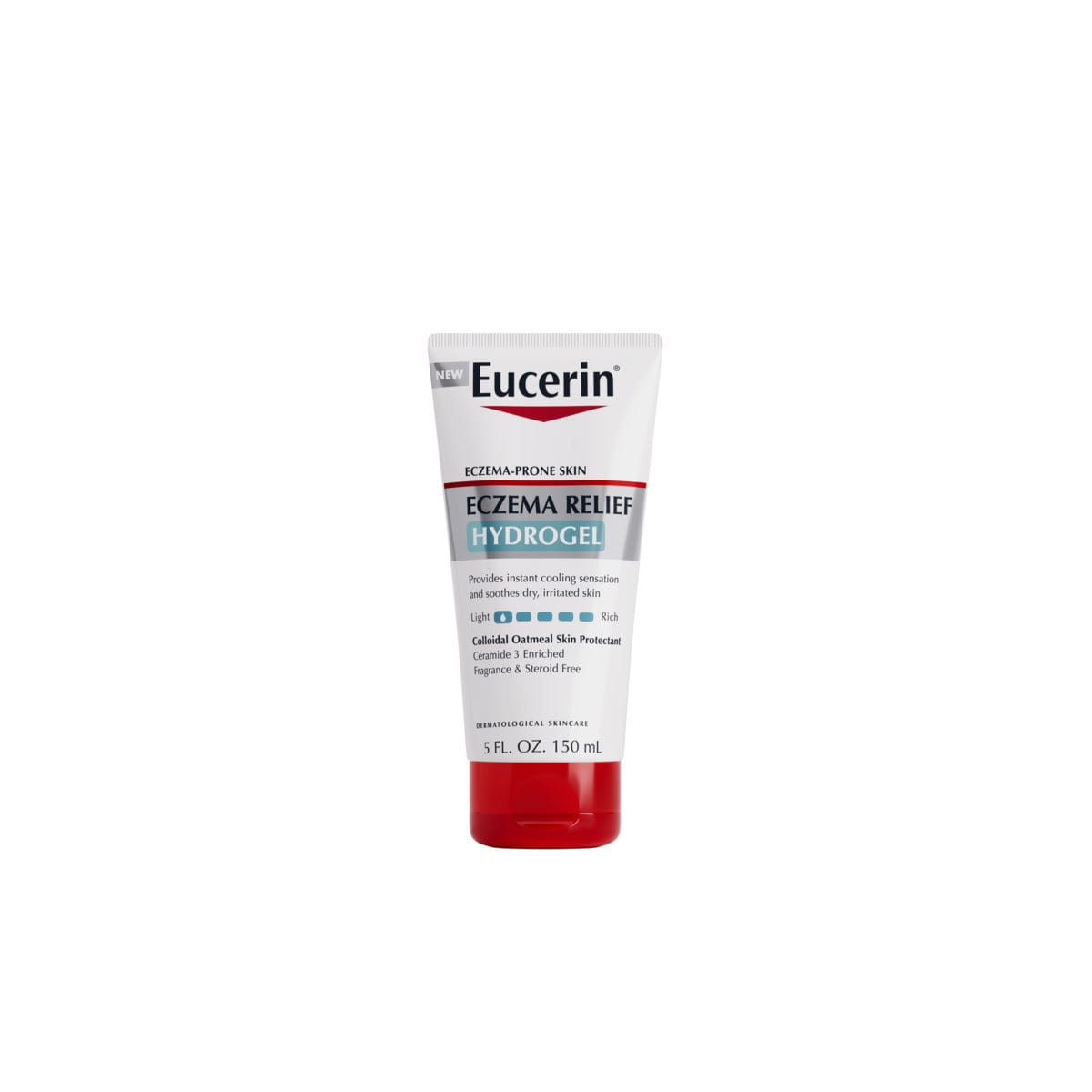

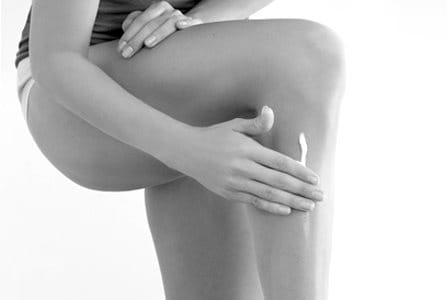
/untitled%20design%20(94).png?rx=51&ry=0&rw=862&rh=578&hash=CDCC5C5EA2E083DA77DF49EE9240B930)

